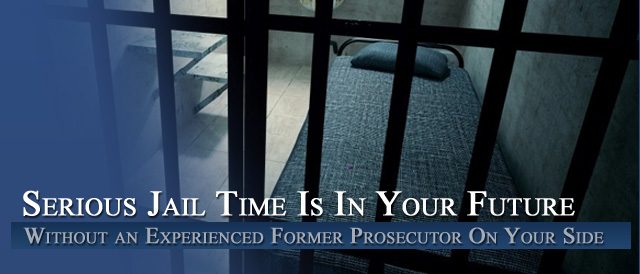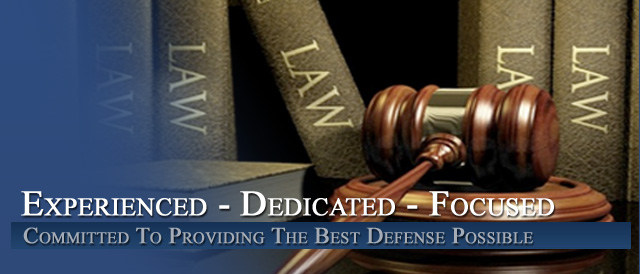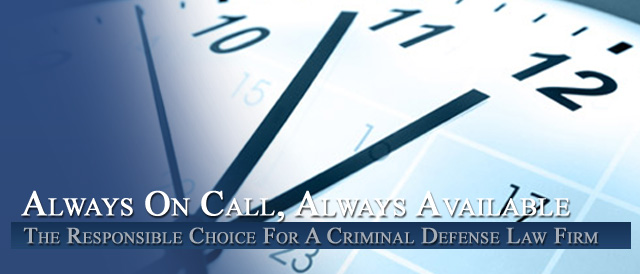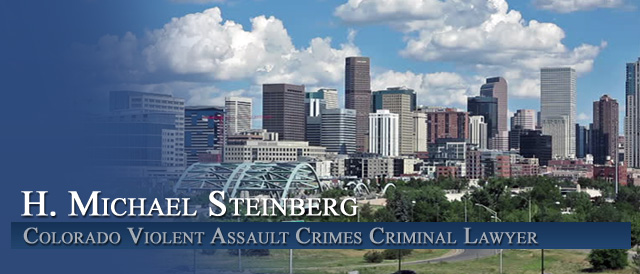





Colorado Criminal Law – Will The Judge Accept Our Plea Bargain – Plea Deal?
By H. Michael Steinberg Colorado Criminal Defense Violent Crimes Lawyer – Attorney
 Colorado Criminal Law – Will The Judge Accept Our Plea Bargain – Plea Deal? – Plea bargaining occur in over 90% of all criminal cases, yet it is among the least understood procedures in the criminal justice system.
Colorado Criminal Law – Will The Judge Accept Our Plea Bargain – Plea Deal? – Plea bargaining occur in over 90% of all criminal cases, yet it is among the least understood procedures in the criminal justice system.
The plea bargain ends negotiations – and the breakdown or failure to plea bargain means a trial is inevitable. Almost all plea bargains require some kind of plea of guilty to either the original charge or charges, lesser added or “amended” charges, and/or something called sentence bargaining.
Whatever the plea bargain that is negotiated, all Colorado judges must approve the agreement in all of it’s specifics. At the time of the entry of the plea a formal advisement procedure known as a “Rule 11 Advisement” must take place.
A Colorado Judge has the authority to reject a plea agreement under Rule 11, and the same Rule that makes certain a Defendant understands the plea deal urges the Judge to exercise “independent judgement” before approving that deal.
What follows is Rule 11:
Colorado Rules of Criminal Procedure – Rule 11. Pleas
(a) Generally. A defendant personally or by counsel may plead guilty, not guilty, not guilty by reason of insanity (in which event a not guilty plea may also be entered), or with the consent of the court, nolo contendere.
(b) Pleas of Guilty and Nolo Contendere. The court shall not accept a plea of guilty or a plea of nolo contendere without first determining that the defendant has been advised of all the rights set forth in Rule 5(a)(2) and also determining:
(1) That the defendant understands the nature of the charge and the elements of the offense to which he is pleading and the effect of his plea;
(2) That the plea is voluntary on defendant’s part and is not the result of undue influence or coercion on the part of anyone;
(3) That he understands the right to trial by jury and that he waives his right to trial by jury on all issues;
(4) That he understands the possible penalty or penalties;
(5) That the defendant understands that the court will not be bound by any representations made to the defendant by anyone concerning the penalty to be imposed or the granting or the denial of probation, unless such representations are included in a formal plea agreement approved by the court and supported by the findings of the presentence report, if any;
(6) That there is a factual basis for the plea. If the plea is entered as a result of a plea agreement, the court shall explain to the defendant, and satisfy itself that the defendant understands, the basis for the plea agreement, and the defendant may then waive the establishment of a factual basis for the particular charge to which he pleads;
(7) That in class 1 felonies, or where the plea of guilty is to a lesser included offense, a written consent shall have been filed with the court by the district attorney.
(c) Misdemeanor Cases. In all misdemeanor cases except class 1, the court may accept, in the absence of the defendant, any plea entered in writing by the defendant or orally made by his counsel.
(d) Failure or Refusal to Plead. If a defendant refuses to plead, or if the court refuses to accept a plea of guilty, or a plea of nolo contendere, or if a corporation fails to appear, the court shall enter a plea of not guilty. If for any reason the arraignment here provided for has not been had, the case shall for all purposes be considered as one in which a plea of not guilty has been entered.
….
(f) Plea Discussions and Plea Agreements.
(1) Where it appears that the effective administration of criminal justice will thereby be served, the district attorney may engage in plea discussions for the purpose of reaching a plea agreement. He should engage in plea discussions or reach plea agreements with the defendant only through or in the presence of defense counsel except where the defendant is not eligible for or refuses appointment of counsel and has not retained counsel.
(2) The district attorney may agree to one of the following depending upon the circumstances of the individual case:
(I) To make or not to oppose favorable recommendations concerning the sentence to be imposed if the defendant enters a plea of guilty or nolo contendere;
(II) To seek or not to oppose the dismissal of an offense charged if the defendant enters a plea of guilty or nolo contendere to another offense reasonably related to the defendant’s conduct;
(III) To seek or not to oppose the dismissal of other charges or not to prosecute other potential charges against the defendant if the defendant enters a plea of guilty or nolo contendere.
(3) Defendants whose situations are similar should be afforded similar opportunities for plea agreement.
(4) The trial judge shall not participate in plea discussions.
(5) Notwithstanding the reaching of a plea agreement between the district attorney and defense counsel or defendant, the judge in every case should exercise an independent judgment in deciding whether to grant charge and sentence concessions.
(6) Except as to proceedings resulting from a plea of guilty or nolo contendere which is not withdrawn, the fact that the defendant or his defense counsel and the district attorney engaged in plea discussions or made a plea agreement shall not be received in evidence against or in favor of the defendant in any criminal or civil action or administrative proceeding.
What Factors Play A Role In A Colorado Judge’s Decision To Reject A Plea Bargain?
Under Colorado law – Judges are mandated to use 6 factors when they impose a sentence – those are:
18-1-102.5. Purposes of Code with Respect to Sentencing.
(1) The purposes of this code with respect to sentencing are:
(a) To punish a convicted offender by assuring the imposition of a sentence he deserves in relation to the seriousness of his offense;
(b) To assure the fair and consistent treatment of all convicted offenders by eliminating unjustified disparity in sentences, providing fair warning of the nature of the sentence to be imposed, and establishing fair procedures for the imposition of sentences;
(c) To prevent crime and promote respect for the law by providing an effective deterrent to others likely to commit similar offenses;
(d) To promote rehabilitation by encouraging correctional programs that elicit the voluntary cooperation and participation of convicted offenders;
(e) To select a sentence, a sentence length, and a level of supervision that addresses the offender’s individual characteristics and reduces the potential that the offender will engage in criminal conduct after completing his or her sentence; and
(f) To promote acceptance of responsibility and accountability by offenders and to provide restoration and healing for victims and the community while attempting to reduce recidivism and the costs to society by the use of restorative justice practices.
A Colorado Judge, reviewing these “purposes of sentencing” factors, may reject a plea bargain for many reasons – here are just a few:
- The Judge has reviewed the underlying evidence in the case and finds that the evidence mandates a harsher, or, in some cases in the rarest of situations… a more lenient plea bargain.
- The Judge has been so influenced by the statements of victims and/or their family members who object to the terms of the plea bargain, it causes the Judge to reject the deal.
- The Judge is influenced by the thoughts and reasoning of the Probation Division as those ideas are expressed in the PSIR – the Pre-Sentence Investigation Report and accepts that Division’s recommendation to reject the agreement.
- The Judge, viewing the agreement in light of the Defendant’s prior criminal history, rejects the plea bargain.
- The Judge believes, on balance, the plea agreement sends the wrong deterrence message to the general public.
The Options Available To The Judge In The Decision To Accept Or Reject A Plea Bargain
Colorado jurisdictions differ on how much of a plea bargain can be agreed to by the parties. In some jurisdictions Judge’s accept “charge bargaining” but not “sentence bargaining.”
What follows are the different options that provide a framework for the options available to most Colorado Judges as they act on a proposed plea bargain:
A Colorado Judge may:
1. A Colorado Judge may accept the terms of the plea bargain.
2. A Colorado Judge may reject the terms of the plea bargain.
3. A Colorado Judge may decide to wait on the Judge’s decision until after reviewing the entirety of the sentencing hearing including the Pre-Sentence report (PSIR).
4. A Colorado Judge may declare that he or she is open to some of the terms of the plea agreement, but reject others (this is a subtle and very dangerous area because a Judge cannot enter into the negotiations in any way under Colorado law).
In most cases, Colorado Judges will either accept a plea bargain or reject it as a whole. Number 4 (above) almost never occurs – it is almost always an up or down vote in every jurisdiction.
Importantly, in those cases where the plea bargain is rejected by the Judge, the Judge is not allowed to unilaterally reform it, but instead, must give the Defendant an opportunity to go back to square one and withdraw from the plea agreement and either renegotiate an agreement or go to trial.
Colorado Criminal Law – Will The Judge Accept Our Plea Bargain – Plea Deal?
If you found any of the information I have provided on this web page article helpful please click my Plus+1 or the Share buttons for Twitter and Facebook below so that others may also find it.
The reader is admonished that Colorado criminal law, like criminal law in every state and at the Federal level, changes constantly. The article appearing above was accurate at the time it was drafted but it cannot account for changes occurring after it was uploaded.
If, after reading this article, you have questions about your case and would like to consider retaining our law firm, we invite you to contact us at the Steinberg Colorado Criminal Defense Law Firm – 303-627-7777.
Never stop fighting – never stop believing in yourself and your right to due process of law. You will not be alone in court, H. Michael will be at your side every step of the way – advocating for justice and the best possible result in your case. H. Michael Steinberg is passionate about criminal defense. His extensive knowledge and experience of Colorado Criminal Law gives him the edge you need to properly handle your case
 – Email The Author at mailto:[email protected]– A Denver Colorado Criminal Defense Lawyer – or call his office at 303-627-7777 during business hours – or call his cell if you cannot wait and need his immediate assistance – please call 720-220-2277.
– Email The Author at mailto:[email protected]– A Denver Colorado Criminal Defense Lawyer – or call his office at 303-627-7777 during business hours – or call his cell if you cannot wait and need his immediate assistance – please call 720-220-2277.
“A good criminal defense lawyer is someone who devotes themselves to their client’s case from beginning to end, always realizing that this case is the most important thing in that client’s life.”
You should be careful to make a responsible choice in selecting a Colorado Criminal Defense Lawyer. We encourage you to “vet” our firm. Over the last 30 plus years – by focusing ONLY on Colorado criminal law – H. Michael has had the necessary time to commit to the task of constantly updating himself on nearly every area of criminal law, to include Colorado criminal law and procedure and trial and courtroom practice. H. Michael works hard to get his clients the best possible results in and out of the courtroom. He has written, and continues to write, extensively on Colorado criminal law and he hopes this article helps you in some small way – Colorado Criminal Law – Will The Judge Accept Our Plea Bargain – Plea Deal?

Other Articles of Interest:
- Colorado Criminal Law – Your Conscience, A Criminal Charge, And The Decision To Retain A Lawyer
- Colorado Violent Crimes – A Time For Strategy – A Time For Experience
- Make a Payment
- Is PTSD A Defense To Violent & Other Crimes Under Colorado Law?
- Colorado Criminal Law – Understanding Mandatory Sentencing For Violent Crimes












